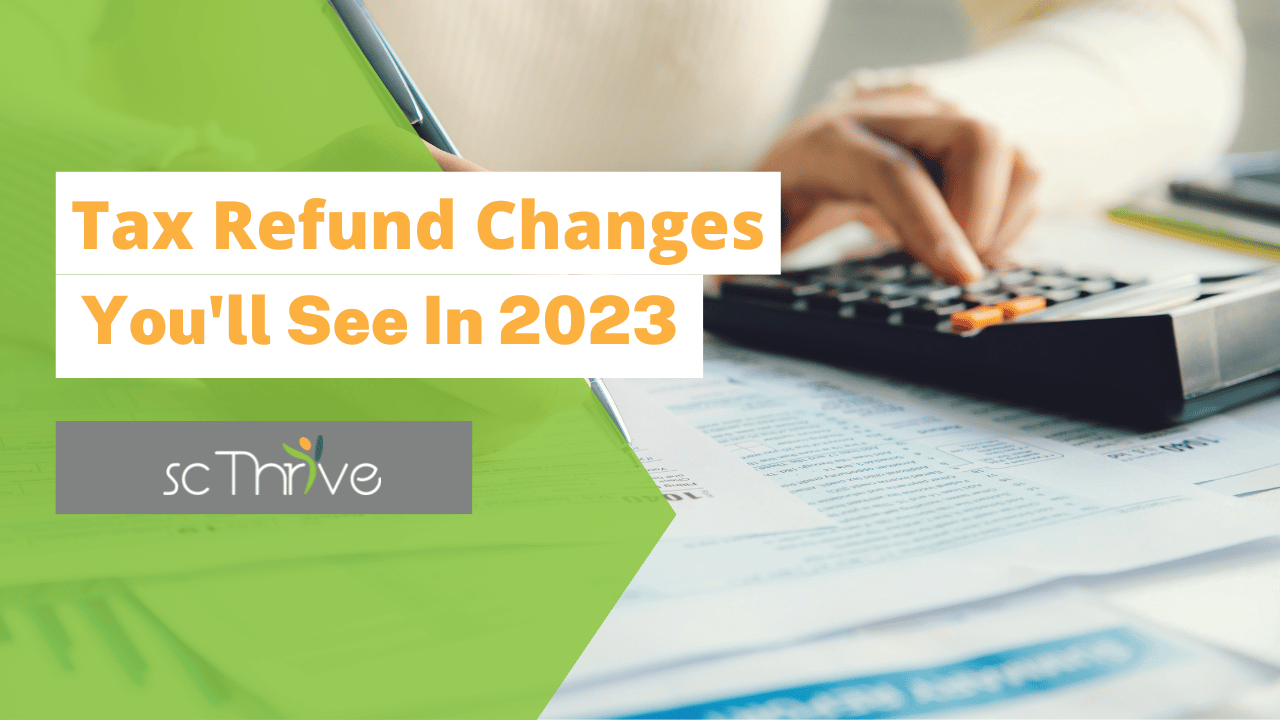
Tax season has officially begun. This year, you may see some changes — many of the pandemic tax benefits due to COVID-19 and its economic hardships expired. The IRS has warned that 2023 refunds may be smaller. Some people who expect to get money back may end up owing the government instead. Taxpayers should avoid feeling overwhelmed by the changes, instead focusing on only those changes that affect their returns.
During the pandemic, several benefits increased individual refunds. Taxpayers will not receive an additional stimulus payment with a 2023 tax refund because there were no Economic Impact Payments for 2022.
Credits
Last year, taxpayers received larger than normal Child Tax Credits (CTC). For the 2023 tax filing season, many CTCs will return to 2019 levels, according to the IRS. That means the CTC credit will drop from the $3,600 issued per dependent back to $2,000 for the 2022 tax year. The Child and Dependent Care Credit will also drop from $8,000 to the normal amount of $2,100.
You can do a couple of things that may help you get the biggest refund possible. They include:
- Claim child tax credits and credits for child-related expenses (if applicable).
- Collect your renewable energy credits.
- Itemize if it will yield a higher deduction.
- Claim the American Opportunity Tax Credit (AOTC) if you have a child in college. The credit can be applied toward student expenses during their first four years of college. The maximum amount you can receive annually is $2,500 per student. If the credit brings your tax due to $0, you’re entitled to have 40 percent of any remaining amount (up to $1,000) refunded to you.
Higher Standard Deductions
Standard Deductions are the dollar amounts set annually by the IRS that most taxpayers can deduct from their taxable income to reduce their tax bill. The IRS raised the standard deduction (for 2022 taxes) for all categories of taxpayers this year. The standard deduction for married couples filing jointly jumped $800. For single taxpayers and married individuals filing separately, the standard deduction went up $400, and for those filing as head of household, the standard deduction is up $600. The following list are the standard deductions for the 2022 tax year.
- Married couples filing jointly, $25,900
- Single or married filing separately, $12,950
- Head of household, $19,400
When Will I Receive My Refund?
There are many different factors that can affect the timing of your refund after the IRS receives a return. Although the IRS issues most refunds in less than 21 days, the IRS cautions taxpayers not to rely on receiving a 2022 federal tax refund by a certain date. Some returns may require additional review and may take longer to process if IRS systems detect a possible error, the return is missing information or there is suspected identity theft or fraud. In order to receive your refund as soon as possible tax filers should:
- file their taxes returns electronically
- receive one’s returns via direct deposit
- double-check one’s personal information
Also, the IRS cannot issue refunds for people claiming the EITC or Additional Child Tax Credit (ACTC) before mid-February. The law requires the IRS to hold the entire refund – not just the portion associated with EITC or ACTC. You’ve got until Tuesday, April 18 to file your taxes this year.
SC Thrive offers two ways to file your state and federal tax return for free. If you are a South Carolina resident and make $73,000 or less, you may qualify to file your taxes with SC Thrive using our self-serve system in Thrive Hub. Set up your account by visiting scthrive.org/filetaxes. You can also file in person with a trained counselor. Find your nearest Tax Clinic by calling our Contact Center at 800.726.8774.
